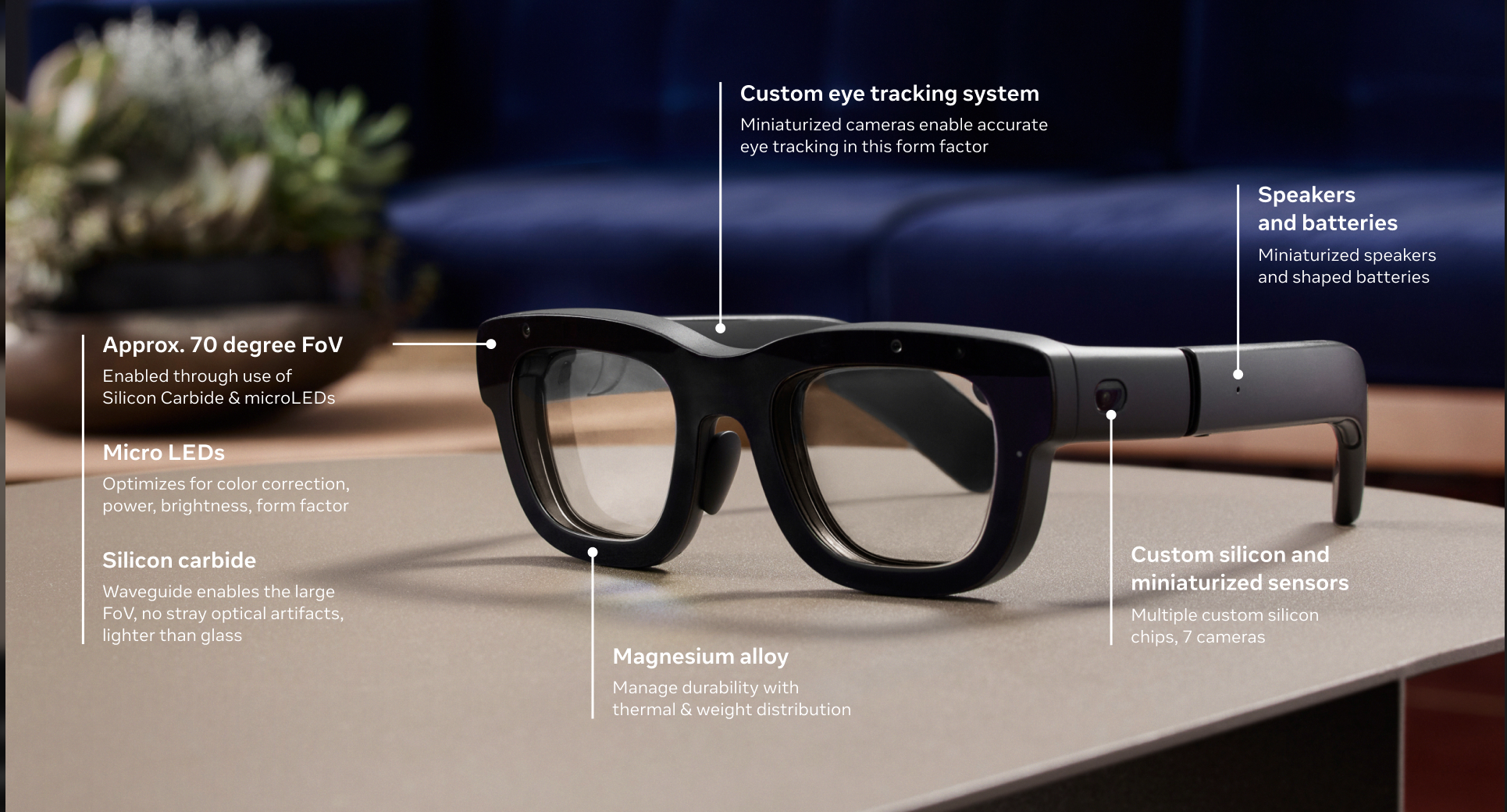Meta's Prototype AR Glasses Have Micro LED Projectors

Meta recently unveiled its prototype AR glasses, codenamed Orion, at Connect. These glasses come with a remarkable 70-degree diagonal field of view, a first for a fully integrated device with a true glasses form factor. Even though these glasses won't be released commercially, the AV industry can gain invaluable insights from the technology behind them. Think of it as an inspirational mood board for future innovation.
Silicon Carbide Lenses & MicroLED Projectors
Orion's lenses are made of silicon carbide, which offers a high index of refraction, coupled with advanced waveguides. It uses microLED projectors, which are smaller and more power-efficient, allowing for a sleeker design. However, the angular resolution is just 13 pixels per degree, similar to the 2016 Oculus Rift.
Split Wireless Compute Architecture
Orion offloads heavy compute tasks to a wireless puck that fits in your pocket, enabling its slim form. Positional and hand tracking, along with specialized AR rendering, run on custom silicon within Orion. The device boasts 2-3 hours of battery life, with app logic and rendering managed by the compute puck, which streams frames wirelessly to the glasses.
EMG Wristband Input Device
Orion comes with a wristband that uses electromyography (EMG) to track minute finger movements, sensed from muscle activation in your wrist. This enables swipe, click, and scroll actions without requiring hand visibility within the glasses' camera view.
AR Content & Applications
Key use cases for Orion include Meta AI, AR games, hands-free video calls, and virtual screens. Meta AI can provide task guidance visually, beyond its audio capabilities on Ray-Ban Meta glasses. You can also share your view in calls and see the other person's camera via a virtual screen. Orion's display allows for true AR games and up to three floating browser windows, even supporting YouTube videos.
No Product, Yet
Meta has confirmed Orion won't be sold commercially due to its high production costs. However, new AR devices inspired by Orion's R&D efforts are expected in the next few years, focusing on affordability, improved display quality, and a more compact form factor.

Sourced from Upload VR, The Verge, and Meta
Recommended Content
LetsTalkAVbyAlexis Series: Episode 5:The Most Repeated Mistake in AV Projects: Treating AV as Equipment, Not a System

End 2025, Enter 2026 (AV Industry)





Please sign in or register for FREE
If you are a registered user on AVIXA Xchange, please sign in